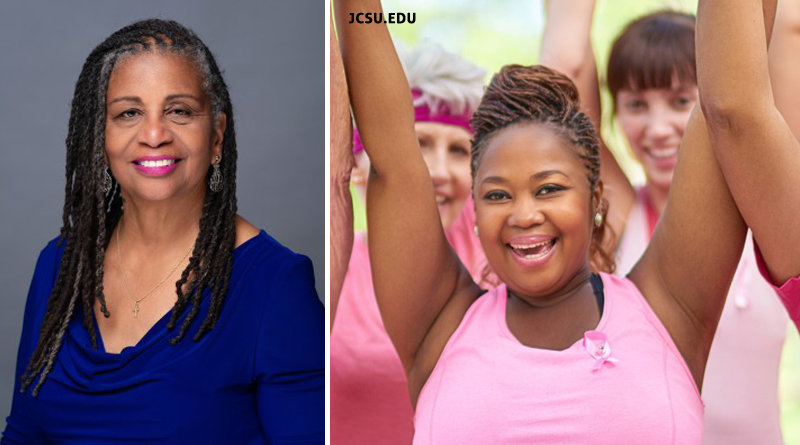JCSU Dr. Harriette Richard Awarded Grant To Research Breast Cancer
Dr. Harriette Richard is no stranger to the challenges of breast cancer. As a three-time survivor of the disease, the JCSU associate professor of Psychology decided she wanted to explore the effect the disease has on older African-American women.
Richard was awarded a $100,000 grant from Atrium Wake Forest Baptist Health to further research the connections between body image and breast cancer, specifically in the experiences of older adult African-American women’s mastectomy experiences.
Throughout her many battles, Richard said she encountered several women just like her who were struggling with their own body image and subsequent trauma amidst the fight of their lives.
“In terms of femininity, our breasts are an important part of who we are as women,” said Richard. “One of the things I’ve noticed in the course of these 14 years is that for women, as they come away from their mastectomy seeing the scars and may decide to go through reconstruction, they experience post-traumatic stress. Body image is such an integral part of who we are that it can affect us psychologically.”
Post-traumatic stress disorder, or PTSD, is a disorder that develops after a person experiences or witnesses a shocking, terrifying or potentially deadly event.
Common PTSD side-effects can include trouble sleeping, irritability, self-destructive behavior, a feeling of constant danger and depression.
Richard reflected on her own experiences of battling breast cancer, recalling that she, too, experienced depression prior to the phenomenon of post-traumatic growth.
Post-traumatic growth is the concept that a person who struggles with PTSD can experience a positive psychological change as a result of the challenging or traumatic experiences they’ve overcome.
“People call it different things, but I didn’t have a name for it when I was experiencing it,” she said. “Post-traumatic growth is about what we see for ourselves in our own future and how will we continue to live our lives.”
As a part of the study, Richard, assisted by two students, some faculty members and contracted services, will interview 50 African-American women over the age of 50. The interviews will be anonymous, and participants will receive a gift card for participating in the research.
Richard said the interview will collect demographic data as well as information regarding specific experiences with their mastectomy and how they viewed themselves after their surgeries.

